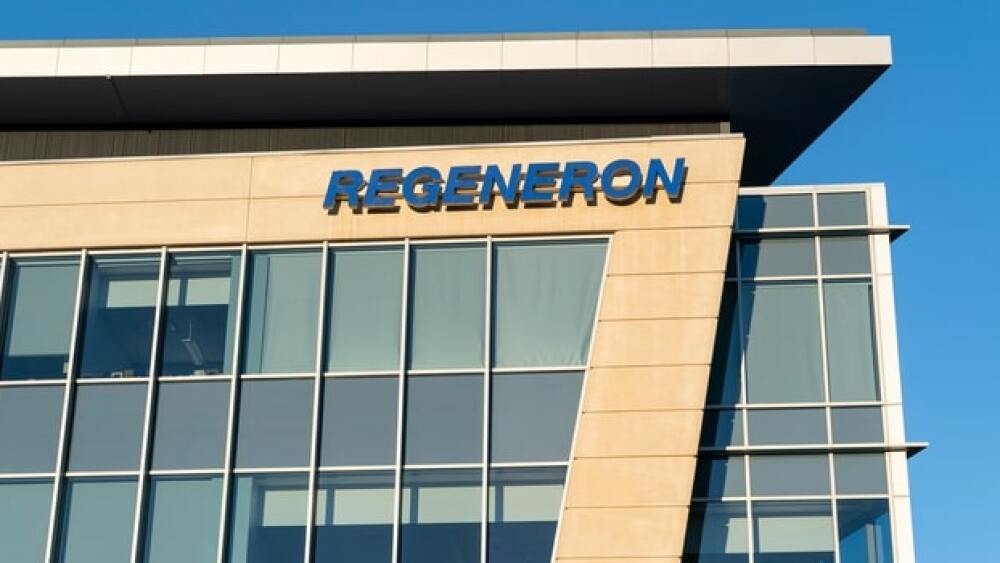Regeneron announced that the U.S. FDA has extended its review of the BLA for monoclonal antibody REGEN-COV, which treats COVID-19.
Lev Radin/Shutterstock
Regeneron Pharmaceuticals announced Thursday that the U.S. Food and Drug Administration has extended its review of the Biologics License Application (BLA) for monoclonal antibody REGEN-COV, which treats COVID-19.
The decision comes after Regeneron submitted additional data from a prophylaxis trial. The delay was announced the same day that AstraZeneca received a Health Canada approval for its very similar prophylaxis COVID-19 treatment.
The REGEN-COV drug is a combination of two monoclonal antibodies, casirivimab and imdevimab. Both antibodies are designed specifically to block the infectivity of SARS-CoV-2. Regeneron created the treatment in collaboration with Roche and the Biomedical Advanced Research and Development Authority, part of the U.S. Department of Health and Human Services’ Office of the Assistant Secretary for Preparedness and Response. The drug became available in November 2020 as the pandemic continued to devastate the world.
At first, REGEN-COV was approved by the FDA with an Emergency Use Authorization to treat non-hospitalized patients with COVID-19. The medicine was also used as prophylaxis, or preventative remedy, in patients at least 12 years old who were not fully vaccinated or at high risk due to exposure or immune system issues. For a year and a half, the treatment was given to millions of patients worldwide.
Then, in January 2022, the FDA modified its Emergency Use Authorization of the drug to exclude regions where the antibody treatment did not help people infected with the local dominant COVID-19 variant. That exclusion affected the United States, so REGEN-COV is currently not approved for any kind of use in the U.S.
Regeneron filed a BLA for REGEN-COV to help get the drug fully approved by the FDA. However, when the company submitted additional data from its prophylaxis trial to its BLA, the FDA considered it a “major amendment” to the original submission. As such, the agency said it is extending the BLA review. The FDA set a target action date of July 13, 2022.
The good news for Regeneron is that the FDA did not require any additional studies to complete its review.
Regeneron hit this roadblock just as AstraZeneca experienced success with a similar treatment. AstraZeneca’s Evusheld, which is also a COVID-19 prophylaxis combination of two monoclonal antibody drugs, was approved by Health Canada. Evusheld is made from antibody B cells extracted from donated blood from patients who recovered from COVID-19. The treatment performed well in a Phase III clinical trial, which showed a 77% reduction in the risk of developing symptomatic COVID-19 in patients 12 years of age and older.
“Evusheld is the only long-acting antibody combination with positive Phase III data in the prevention and treatment of COVID-19. AstraZeneca is progressing with filings around the globe for potential emergency use authorization or marketing approval of Evusheld in both COVID-19 prophylaxis and treatment,” AstraZeneca said in a press release.
Despite its own setback and a competitor’s success, Regeneron has a positive outlook on its COVID-19 treatment as well as the other antibody treatments it is developing.
“Regeneron remains committed to fighting this pandemic and believes that monoclonal antibody therapies will continue to play an important role. The company is progressing investigational next generation antibodies that are active against the currently circulating variants of concern, and has initiated a first-in-human clinical trial of one of these next generation antibodies,” the company said.





